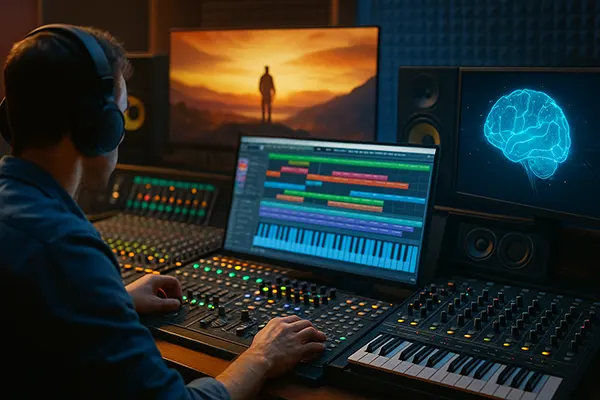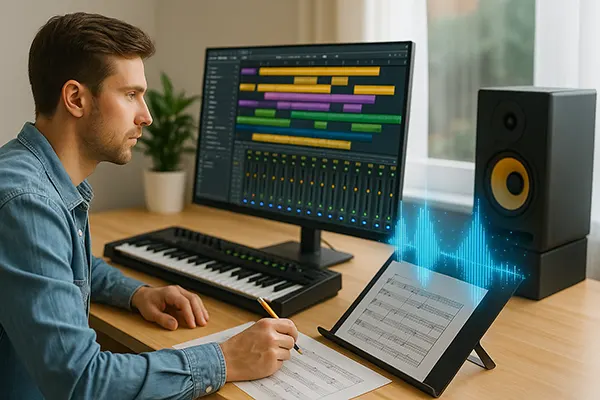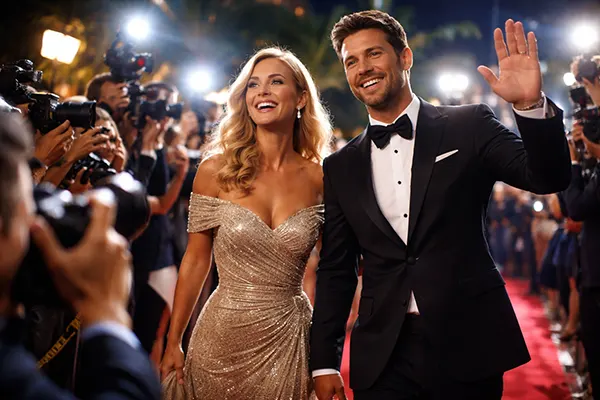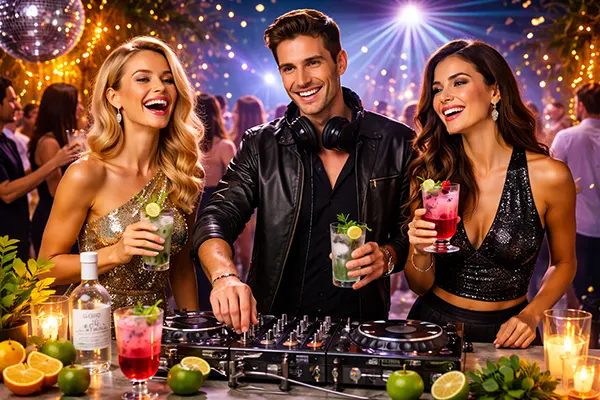
How Artificial Intelligence is Transforming the Work of Music Producers in Hollywood
The influence of artificial intelligence (AI) in Hollywood is no longer a matter of the future — it is today’s reality. While actors and screenwriters have already begun adapting to algorithms and generative tools, music producers find themselves at the forefront of an evolving creative landscape. In 2025, AI is not just supporting their workflows; it is actively shaping the soundtracks of blockbusters, streaming series, and even trailers. Let’s explore how this shift is happening and what it means for the future of film and music in Hollywood.
AI-Powered Tools in Music Creation
Artificial intelligence has introduced new instruments into the hands of Hollywood’s music creators. Tools like Suno AI Music Studio and Amper Music allow producers to generate melodies, harmonies, and complete soundtracks in minutes. These tools use deep learning algorithms trained on thousands of musical pieces to compose original audio tailored to specific moods or cinematic scenes.
For instance, Amper Music is increasingly used in trailer production, where timing and emotional impact are critical. Producers can input key parameters — genre, tempo, tone — and receive a custom score. This cuts down on licensing complexities and the need for multiple human revisions.
In post-production, AI audio engines help with adaptive scoring: as a film is edited, the soundtrack automatically adjusts to match scene transitions. This allows music producers to spend more time fine-tuning emotions and less time on structural syncing.
Case Studies from the Industry
One notable example is the use of Suno’s AI suite by producers working on Netflix’s anthology series. In 2024, the show’s music director revealed that nearly 40% of the background score was AI-generated, yet manually supervised. The director highlighted that AI helped shape the overall mood without compromising artistic intent.
Hollywood veteran Hans Zimmer commented on the topic during a music tech panel in early 2025. While he’s not replacing human composers, he acknowledged using AI-generated sketches to speed up orchestration trials. Zimmer explained, “AI offers a second brain for exploration. It doesn’t replace the soul — it helps find it.”
Even indie producers are embracing AI. The Sundance-nominated film “Lucid Signal” (2025) credited Suno AI for creating ambient soundscapes that were impossible to produce under a limited budget. These real-world uses demonstrate the growing reliance on synthetic audio not as a shortcut, but as a creative collaborator.
Challenges and Ethical Considerations
With AI’s entrance into creative industries, copyright issues have become more pressing. Music producers must navigate the blurry lines between original work and machine-learned patterns. For example, if an AI tool generates a track too similar to a known melody, who is held liable — the producer or the algorithm’s creator?
Moreover, the concept of authorship is being redefined. Traditional rights management systems are not designed to accommodate collaborative work between a human and a machine. As a result, industry organisations are lobbying for legal reforms, demanding clearer frameworks for ownership and revenue sharing.
Some unions also raise concerns about job displacement. With AI able to replicate certain musical tasks, freelance composers and sound designers may face reduced demand. While full replacement is unlikely, a shift in required skills — from composition to curation — is becoming evident.
Regulatory and Community Responses
In March 2025, the Recording Academy released a guideline recognising AI-assisted works but excluded fully machine-generated compositions from Grammy eligibility. This move was seen as a compromise between innovation and tradition.
Major studios have begun including AI-disclosure clauses in contracts, ensuring transparency about the extent of synthetic involvement in a production. These clauses are expected to be standard by the end of the year, affecting both newcomers and veterans in the industry.
The producer community remains divided. Some embrace AI as a liberating force, while others warn about its overreach. As debates intensify, the key message is that ethical use — with accountability and transparency — is essential for sustainable integration.

The Future of Music Production in Hollywood
Looking ahead, AI is poised to deepen its roots in music production. As generative models become more sophisticated, their ability to simulate human nuance — emotion, pacing, tension — will expand. Music producers will likely evolve into hybrid creators who blend technical supervision with emotional judgment.
Collaborations between AI labs and studios are accelerating. In June 2025, Warner Bros. launched a pilot programme with a Berlin-based AI music firm to explore dynamic scoring for interactive films. These experiments signal a broader industry interest in AI not just as a tool, but as a co-author in multimedia storytelling.
Education is also adapting. Institutions such as Berklee College of Music and UCLA now offer AI-composition electives, training the next generation of Hollywood music professionals in both code and composition. The future producer will not only hear music — they will train, guide, and edit the intelligence that helps make it.
What This Means for Creators
The role of a Hollywood music producer is being redefined. Rather than losing control, producers are gaining new opportunities to experiment, iterate, and personalise their sound. AI is offering more creative freedom — but only when used with discernment.
Real artistry will depend on the human touch: the decision of when to let AI lead and when to override it. In a landscape full of innovation, creative judgement remains irreplaceable.
Ultimately, music production in Hollywood will become a dialogue between human intuition and artificial creativity. And those who learn to speak both languages fluently will shape the sound of tomorrow’s cinema.






